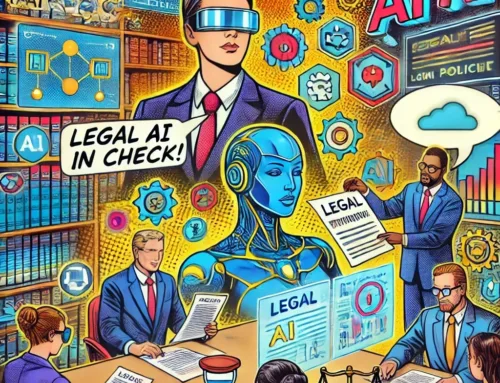The legal profession is on the brink of a significant transformation, driven by the rapid development and adoption of artificial intelligence (AI) technologies. The 2024 ABA Task Force on Law and Artificial Intelligence Report offers a comprehensive analysis of AI’s impact on the practice of law, highlighting both the opportunities and challenges that lie ahead for legal professionals. Here are the key insights from the report and what they mean for the future of legal practice.
1. The Unstoppable Rise of AI in Law
AI has become an integral part of many industries, and the legal field is no exception. The report underscores that AI is poised to revolutionize legal practice by enhancing efficiency, reducing errors, and providing innovative solutions to complex legal problems. However, this technological advancement comes with the responsibility of ensuring that AI tools are used ethically and effectively.
The Task Force emphasizes that AI can improve many aspects of legal work, from document management to legal research and contract analysis. Extractive AI, in particular, has shown promise in handling large datasets, allowing lawyers to make more informed decisions quickly. Generative AI, which can produce new content based on prompts, is also gaining traction. However, its use is more controversial due to potential risks like generating inaccurate content or violating ethical standards.
2. Ethical Considerations and Challenges
Ethical considerations have taken center stage as AI becomes more embedded in legal processes. The report highlights the need for legal professionals to understand the limitations and potential pitfalls of AI, such as “hallucinations”—instances where AI generates plausible but incorrect information. The ABA Model Rules of Professional Conduct have been adapted to address the ethical use of AI, but the report suggests that more guidance is needed as AI continues to evolve.
One significant concern is the confidentiality of client information when using AI tools. The report advises lawyers to carefully consider how AI vendors handle data and to seek tools that ensure client information remains protected. Additionally, the rise of deepfakes and other forms of AI-generated misinformation presents new challenges for maintaining the integrity of evidence and ensuring fair trials.
3. AI and Access to Justice
Perhaps one of the most promising aspects of AI in law is its potential to improve access to justice. The report discusses how AI tools can democratize legal services by providing affordable, accessible legal information to those who cannot afford traditional legal representation. AI can assist pro se litigants, support legal aid organizations, and even help in areas with a severe shortage of legal professionals.
However, the report also warns of the risks associated with unequal access to advanced AI tools. If only well-funded law firms can afford the best AI technologies, the justice gap could widen. The legal community must work to ensure that AI tools are accessible to all, including those serving low-income clients.
4. The Future of AI in Legal Education
As AI reshapes the legal landscape, legal education must adapt to prepare the next generation of lawyers. The Task Force found that many law schools are already incorporating AI into their curricula, teaching students how to use these tools responsibly and effectively. The report suggests that this trend will continue to grow, with more law schools offering courses specifically focused on AI and its implications for the legal profession.
5. Governance and Risk Management
The report also touches on the broader implications of AI for legal governance and risk management. As AI tools become more prevalent, there is a pressing need for standardized guidelines and best practices to ensure their responsible use. The ABA Task Force is actively working on developing these standards, focusing on issues like bias, privacy, and the transparency of AI decision-making processes.
Conclusion
The 2024 ABA Task Force on Law and Artificial Intelligence Report paints a picture of a legal profession at a crossroads. While AI offers unprecedented opportunities to enhance legal practice, it also presents significant challenges that must be addressed. Legal professionals need to stay informed about the latest developments in AI, embrace the tools that can help them better serve their clients, and remain vigilant about the ethical implications of this powerful technology. The future of law is undeniably intertwined with AI, and those who navigate this landscape thoughtfully will be well-positioned to thrive in the years to come.


